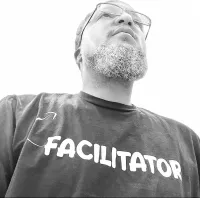

Your Success, Our Priority
Browse our articles below
Make sure to request our FREE Role Player Guide to Recruiting
Click the more stories button for additional articles

Discernment in the Athletic Recruiting Process
Discernment in the Athletic Recruiting Process Changes the Game
Recruiting doesn’t reward those who move on autopilot. It favors those who study the details, question every offer, and weigh their options with clear eyes. Discernment in the athletic recruiting process is your competitive edge. Coaches sort through hundreds of prospects, and every decision you make signals your awareness, maturity, and long-term vision. Whether you’re a student-athlete, a supportive parent, or a coach guiding talent, understanding how to apply discernment in every phase of recruiting separates leaders from those lost in the shuffle. The path to a scholarship, roster spot, or the right college fit demands more than raw skill. It requires sharp decision-making, unwavering honesty, and a steady process that filters hype from real opportunity. This article breaks down how you can sharpen your discernment, make confident choices, and outmaneuver the noise in the recruiting world.
Why Discernment Drives Success in Recruiting
Discernment is not a buzzword—it’s your filter for separating opportunity from distraction. Athletic recruiting is loaded with noise: flashy social media posts, promises from third-party services, and pressure from all sides. Without discernment, you risk chasing the wrong goal or signing with a program that doesn’t fit your needs. Recognizing what matters is essential for avoiding common traps that derail both careers and expectations.
Coaches value recruits who demonstrate maturity, not just athleticism. When you ask informed questions, verify claims, and ignore empty hype, coaches notice. They want athletes who think critically, understand their strengths, and own their decisions. If you blindly follow the crowd, you lose leverage and credibility. Discernment protects your academic future, athletic development, and personal well-being.
Discernment also helps you manage the emotional swings of recruiting—rejection, interest, silence, and sudden offers. Rather than reacting impulsively, you assess each situation on its own merit, using a structured approach to filter options. This steady hand is what helps you thrive when others panic.
Identifying Red Flags During the Recruiting Process
Red flags aren’t always obvious. Some look like opportunity but signal deeper issues beneath the surface. Recognize these warning signs early to protect yourself and your future in college athletics:
Generic communication: Mass emails or impersonal messages often mean you’re not a priority.
Pressure tactics: Coaches or recruiting services demanding immediate decisions rarely have your best interest in mind.
Lack of transparency: Unclear scholarship details, hidden costs, or vague promises signal trouble.
Overpromising: Guarantees of playing time or scholarships before you’ve visited campus or met staff are unreliable.
Disorganized programs: Last-minute visits, poor communication, or staff turnover can indicate deeper instability.
You’re not just looking for a school or a team, you’re vetting an environment that will shape your next several years. Stay alert to these signals, ask for clarification, and trust your instincts. If something feels off, it probably is.
Evaluating College Fit Beyond the Offer
Discernment means measuring more than the size of the scholarship or the prestige of the program. The right fit is a combination of academics, team culture, coaching style, location, and long-term growth. Focusing solely on the offer blinds you to what actually impacts your daily experience and future success.
Ask yourself:
Does the academic environment match your goals and learning style?
How do players speak about the culture, coaching, and support?
Will you have opportunities for development, both athletically and personally?
Is the location a match for your lifestyle, support system, and comfort?
Taking the time to answer these questions helps you avoid the common pitfall of transferring or burning out. You can find more about evaluating fit through this detailed guide on finding the right fit.
Practical Steps for Student-Athletes to Practice Discernment
Applying discernment is a skill you can build. Here’s how student-athletes can put it into action:
Keep a recruiting journal. Document every contact, visit, and conversation. Track your impressions and questions.
Research each program. Look beyond highlight reels. Review graduation rates, transfer histories, and alumni success.
Ask direct questions. Don’t settle for vague answers. Get specifics about your role, support, and expectations.
Seek outside perspectives. Talk to current players, recent graduates, and neutral mentors.
Pause before responding. Take time to weigh new offers or changes. Rushed decisions rarely age well.
These steps build your confidence and allow you to make informed choices, not just emotional ones. For more self-assessment tools, see this breakdown of how your skills become your resume.
What Parents Need to Know About Supporting Discernment
Parents play a major role in shaping discernment. Your job isn’t just cheerleading—it’s helping your athlete develop the judgment to make long-term decisions. Avoid steering the process with your own preferences. Instead, empower your child to ask hard questions, reflect honestly, and resist pressure.
Here’s how you can help:
Encourage open conversations about priorities and concerns.
Support thorough research, including campus visits and connecting with current athletes.
Teach financial literacy around scholarships, aid, and program costs.
Stay patient during the decision process, even when anxiety rises.
Parents who model discernment give their athletes the confidence to say no to the wrong fit and yes to the right one. For a deeper look at the parent role, check out this resource for navigating the parent-athlete dynamic.
Coaches’ Perspective: What Coaches Look for in Discerning Recruits
Coaches want more than talent. They look for athletes who bring awareness and maturity into the recruiting process. When you ask thoughtful questions, express clear goals, and demonstrate accountability, you stand out from the crowd. Coaches want to know you’re reliable, team-oriented, and capable of handling adversity.
Discerning recruits show:
Respectful communication—prompt, direct, and professional.
Understanding of program values and expectations.
Willingness to listen, learn, and adapt.
Ownership over their recruiting journey, not outsourcing decisions to others.
Coaches take note when a prospect turns down an offer thoughtfully, not just chasing the next best thing. For more on this, see how coaches view discerning prospects and recruiting politics.
How to Spot Overhyped Recruiting Services
The recruiting industry is filled with third-party services offering exposure and shortcuts for a fee. Discernment helps you avoid costly mistakes and wasted time. Many of these services promise direct connections to coaches, but often provide little value beyond what you can achieve with focused effort and research.
Ask these questions before committing:
Does the service have proven success stories with athletes like you?
Are reviews and testimonials authentic, or do they feel scripted?
Can you accomplish the same tasks—highlight reels, outreach, follow-up—on your own or with your coach’s help?
Is the pricing clear, or are there hidden fees and upsells?
Invest your energy in building genuine relationships and showcasing your skills. For a breakdown of recruiting service pitfalls, review this analysis of what to watch for.
Decision Fatigue and the Role of Discernment
Recruiting brings a constant stream of decisions—some small, some life-changing. Decision fatigue can cloud your judgment and lead to mistakes. Discernment acts as your anchor, providing a clear framework for every choice. You don’t need to entertain every offer or respond to every message. Prioritize your core criteria and stick to your process.
Combat decision fatigue by:
Setting a weekly review of new information, instead of reacting in real time.
Creating a checklist of non-negotiables for your college experience.
Delegating tasks when possible, such as having a trusted adult review contracts or offers.
For more on managing decision overload, reference this guide to reducing stress in recruiting.
Building a Discernment Checklist for Every Recruiting Conversation
Consistency wins in recruiting. Use a checklist for every interaction to keep your process on track. Here’s a sample you can adapt:
What are the coach’s expectations for your role and development?
Are scholarship details, costs, and commitments clearly spelled out?
What is the team culture, both on and off the field?
How is academic support structured for athletes?
What do current and former players say about their experience?
Bring this checklist to every meeting, call, or campus visit. It keeps your questions focused and shows coaches you approach your future with intention. Consistent application is the key to making sound decisions.
When to Say No and Walk Away
Saying no is a powerful skill in recruiting. Not every opportunity, visit, or offer deserves your attention. Discernment gives you the confidence to walk away when something doesn’t feel right, even if others can’t understand your choice.
Watch for these moments:
The coach dodges your questions or avoids specifics.
The program’s academic or athletic track record doesn’t align with your goals.
You sense pressure to commit before you’re ready.
The fit just doesn’t feel authentic for you or your family.
You owe it to yourself to protect your future. No is a complete sentence. For more on this mindset, see this guide on confidently declining offers.
Discernment: The Edge That Lasts Beyond Recruiting
Discernment isn’t a skill you outgrow after signing day. Every step in your athletic and academic journey will require the same clear judgment, from navigating roster changes to managing relationships and seizing new opportunities. When you master discernment in the athletic recruiting process, you build a foundation that carries you through every challenge and transition that follows. The next time uncertainty clouds your options, lean on the process, trust your questions, and remember that your future is too important to leave to chance. The athlete who thinks critically, acts intentionally, and chooses wisely will always stay ahead—and that advantage never fades.
Resources & Community
🎯
Follow Facilitate The Process on Facebook
https://www.facebook.com/facilitatetheprocess/
🌐
Join Our Recruiting Community
🔗
Get Started Today

